Latest News
New Self-Care Services
We are delighted to announce the launch of 6 new self-care services. The services aim to provide a wide range of support to cater to your varying interests and hobbies.
What is Self-Care?
Self-care involves the actions that you take for yourself, on behalf of and with others in order to develop, maintain and improve your wellbeing. Self-care activities add energy, purpose and creativity to our weekly routines. They are a great way to get more skilled at thinking, feeling and engaging with the world in a healthier and more productive way.
Can the Self-Care Services Help Me?
The Community Living Well programme helps people to take more control of their mental health and physical wellbeing. They also build social contact access to community, leisure, education, arts and volunteering opportunities. There is a range of different self-care services that can be accessed through Community Living Well. Details of each are listed below.
How Can I Sign Up?
You can refer to the self-care services via this referral form.
Clement James Wellbeing
One-off workshops, ongoing activities and events to help you build confidence, relax and connect with others at a friendly centre.
Emotional/Practical 1:1
A service offered in Arabic (Moroccan and Sudanese dialects), Farsi, French, Somali and Spanish to provide one-to-one emotional support and help with practical problems.
Massage
Centre-based therapies including Indian head massage, reflexology and seated massage.
My Recipe, My Story
Activity group for women of diverse backgrounds to explore the stories behind their favourite recipes with others in the community.
Well Read (Play Reading)
A community play-reading programme that provides an opportunity to meet other local people and read different stories.
Volunteering
A volunteering programme that will enable you to meet others, share skills and interests and improve your wellbeing through volunteering tailored to your needs.
For further information on the projects, including contact details, click here or read our online leaflet.
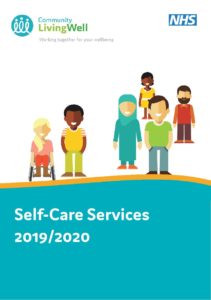
Author: Tamsin Cogan
Category: Uncategorised
Posted on: 11th September 2019
How a Self-Esteem group helped Neeraj
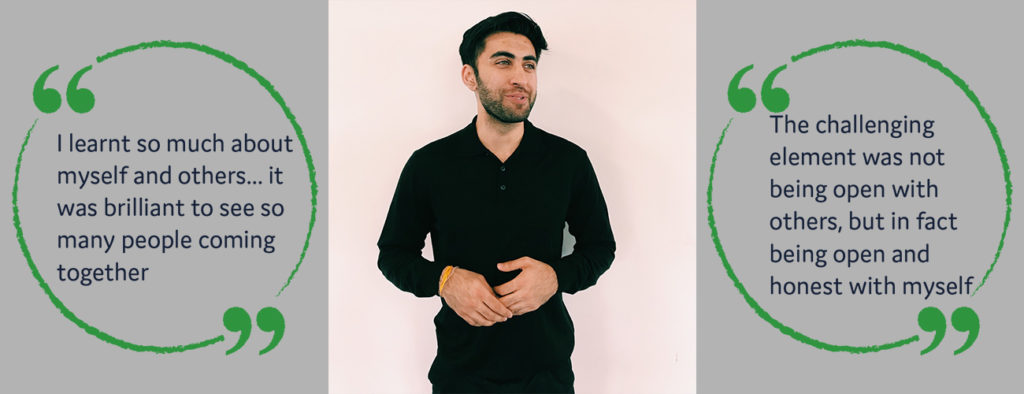
A hectic lifestyle coupled with a lack of support left Neeraj’s self-esteem at an all-time low. But after attending a Community Living Well self-esteem group, he learnt to overcome his critical thoughts, change his internal dialogue and adopt a more self-compassionate outlook.
The Community Living Well Psychological Therapies service offers talking therapy or counselling that can help you if you are feeling stressed, worried, anxious or low in mood. We offer a range of therapy options, all of which are effective treatments recommended by the National Institute for Clinical Excellence. We also offer a range of workshops and courses based on Cognitive Behavioural Therapies, including Mindfulness, Boosting Self-Esteem, Mood Boost and Stress Less.
To sign up to the service, please click here
Why were you referred to Community Living Well Psychological Therapies?
I was at a stage in my life where it felt like everything had piled up all at once. I jumped straight into a full-time job two weeks after I had finished my exams at university and was trying to find a house to move into in London with friends. I’ve suffered from anxious and depressive states ever since I can remember, but never got help for these conditions in the past. I was referred by my GP to Psychological Therapies. I found them to be polite, nice and understanding.
Within two weeks of meeting the doctor, I was called for a preliminary consultation. They thought the cause of my depressive state could be due to low self-esteem. They suggested that I attend a ten-week self-esteem group which brought like-minded people together to discuss and learn from each other’s experiences. I had always been curious to know if other people’s stories were similar, and if so, was keen to exchange theirs with mine, so I decided to take the plunge and join the group.
What attracted you to the self-esteem group?
I know that a therapist is trained in providing help to those that need it, but there’s something about having people in the same room as you who are tackling the same issues that I found to be extremely reassuring as it put some of my worries to rest. Once in there, you are reminded of how nice and open people can be.
Tell us about your experience of the group
I remember coming home after the first group and falling asleep on my sofa, completely knocked out for a few hours. I pushed through though and learnt so much about myself and others. It was brilliant to see so many people come together to help understand why our brains can default to an over-thinking cycle. There was laughter too, as by the fourth week we had become friends and were chatting about the latest books we were reading.
Were there any challenges from being part of the self-esteem group?
The challenging element was not being open with others, but in fact being open and honest with myself. To do that, you must try and confront your judgemental thoughts so that over time you learn to be less harsh on yourself.
What has the effect been like on your self-esteem?
I’m a confident and vibrant character and I love fashion and music, so when I share my story with people for the first time, they often stare at me in disbelief. But I’ve learnt to trust others and not judge myself as severely as I used to. Now I take a moment before I approach a task or attend an event to assess the impact it will have on my state of mind. My self-esteem has drastically improved, and with that, so have other parts of my life.
What was the most important thing you gained from the self-esteem group?
We were encouraged to take part in a weekly self care activity and share our experiences with the group. I still do one thing a week, for instance baking a cake (I actually learnt how to bake through one of these self-care activities.) I also take a few minutes at the end of every day to write down one good thing I have done. It could be as simple as picking up an item that someone dropped on the street as this signifies empathy. I also write down three good things that happen to me each day, that can range from petting a dog on the side of the road to landing a new job.
What advice would you give others who are struggling with psychological issues, particularly self-esteem?
You’re not alone, you’re not weird and it’s okay to feel the way you do! The world is a great place with you in it, and it will be even better when you take some time to look after yourself.
Do you have a plan for maintaining the progress that you’ve made?
When I get caught in a loop, I try not to think about myself as a burden and instead reach out to people who I trust and care about. I also do the activities I mentioned above.
Community Living Well is a mental health service for those registered with a GP in the Royal Borough of Kensington and Chelsea, or the Queen’s Park and Paddington areas of Westminster. The services on offer include talking therapies, support groups, help with employment and support with debt, housing and benefits issues. Self-referrals can be made here. For more information please call 020 3317 4200.
This story was originally published in the Summer 2019 edition of the Community Living Well magazine. It has been edited for website purposes. Subscribe today to receive inspirational stories of recovery, just like Jenny and Steven’s, straight to your inbox, four times a year!
Author: Tamsin Cogan
Category: Uncategorised
Posted on: 5th September 2019
What is Peer Support?
Peer support is when people use their own experiences to help each other.
It can support you if you want to:
- feel less isolated
- increase your confidence
- get or give support and talk to others who understand your mental health problems through a shared experience
- be more knowledgeable about your mental health
Peer Support offers both peer-led and peer-facilitated activities, which focus on your strengths, hopes and ambitions and can help you develop skills and strategies to manage and maintain your emotional and physical wellbeing.
To sign up to the service, please click here
Want to learn more about this type of support? Read our ‘In our Member’s Words’ poster below.
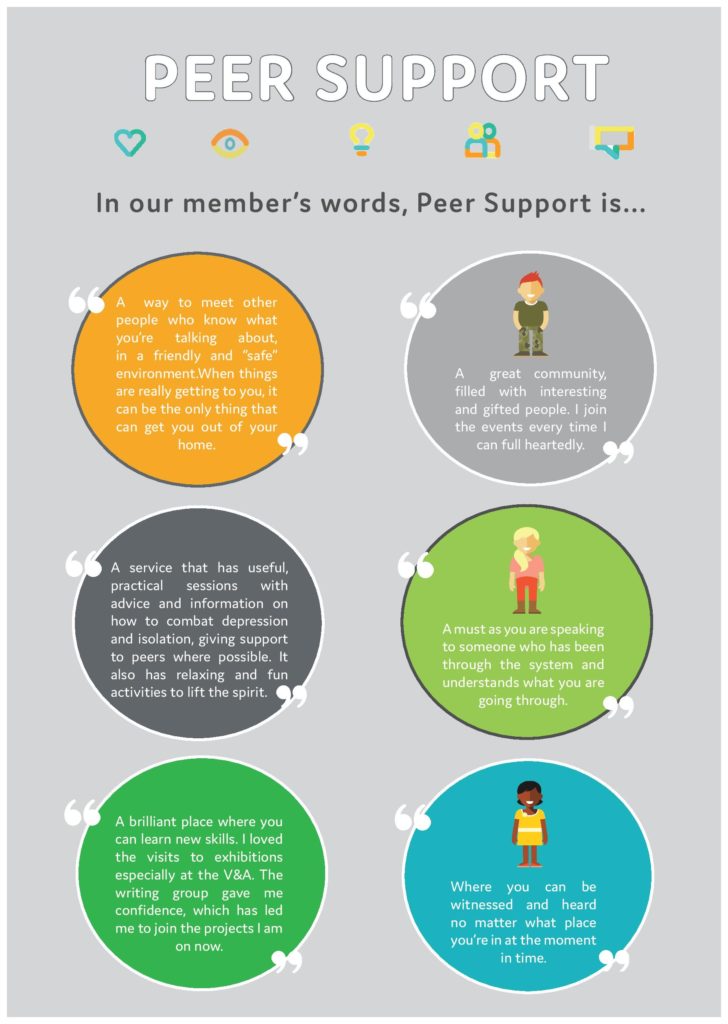
Author: Tamsin Cogan
Category: Peer Support
Posted on: 27th August 2019
How Talking Therapy Helped Lucy
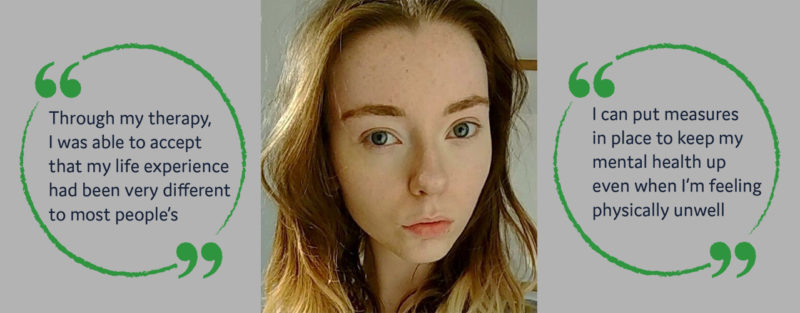
Lucy, a long-term sufferer of two rare health conditions, spoke to our communications team about the repercussions they have had on her mental health and how talking therapy with Community Living Well helped her to reframe her perception of herself and embrace life with her long-term conditions.
The Community Living Well Psychological Therapies service offers talking therapy or counselling that can help you if you are feeling stressed, worried, anxious or low in mood. We offer a range of therapy options, all of which are effective treatments recommended by the National Institute for Clinical Excellence.
To sign up to the service, please click here
Tell us about your long-term health conditions
I have two long-term physical health conditions and two long-term mental health conditions. They all impact each other. My physical health conditions include Gastroparesis which is a paralysis of the stomach. I was hospitalised on and off for four years with this digestive illness and had to have a feeding tube at one point.
My neurological condition (Suna syndrome) is similar to epilepsy, with symptoms that imitate a migraine condition. It causes sharp bursts of pain throughout the head and face randomly (up to 100 times a day). Both conditions physically impact my life and it’s very hard to live a day-to-day life with either of them. I also have long term depression and anxiety that I’ve had since I was young. I tend to find that the depression comes on during extreme bouts of physical pain.
What led you to seek talking therapy with Community Living Well?
I had just undergone a major operation for my Gastroparesis and was having quite a difficult time. The prospect of going back into education had left me feeling stressed. This triggered severe anxiety, which coupled with the fact I was experiencing intense pain, had a significant impact on my depression levels. I felt like I needed support that I wasn’t getting otherwise.
Tell us about your experience
I had various therapies prior to this that were associated with pain management – some helped and some didn’t. This was the first time I was seeing a therapist because I felt like I needed active support specifically for my mental health. Life before I had therapy feels very different to life afterwards and I found the sessions incredibly helpful. Getting things off my chest and having someone who would listen to me was very beneficial as I felt like I had been living in my own head.
I was aware of techniques such as writing things down and talking to people I trusted but these weren’t actions that I had ever implemented in the past. In the lead-up to the therapy, I had been experiencing anxiety at the thought of leaving school due to my health conditions. The support I received helped me to realise that this wasn’t an ending to my dreams, but instead an opening to other pursuits.
Did you overcome any specific challenges during talking therapy?
One of the main reasons I went to therapy was because I had been struggling a lot with the fact that I had missed so much of my education. This made me feel like I wasn’t good enough because I wasn’t able to deal with my illnesses or accomplish the same academic achievements as those around me. Through my therapy, I was able to accept that my life experience has been very different to most people’s. My abilities are different as I haven’t had the same experiences and opportunities as other people.
My therapist helped me see that this didn’t mean I wasn’t able to do certain things, it just meant that they may take a different form for me. I learnt that it’s okay for me not to succeed at everything as there will be other opportunities out there. This was a huge revelation to me because before that I had a very specific life plan mapped out. It was liberating to be able to put that to one side and thrive outside of my regimented idea of what my life was going to be like.
Does having a long-term condition challenge you in any way?
One of the topics I covered in therapy was my feeling of unease at the thought of no longer being sick. I had been ill for such a long time that I didn’t really know who I was outside of my illness. I still struggle with this – who I am when I’m not in pain and crying on the floor – because it’s such a huge part of my identity. Through healing and accepting my conditions, I have learnt that I have lots of other facets and that my illnesses don’t define me.
What was your understanding of the connection between your physical and emotional health before and after your talking therapy?
I always knew there was a connection between my physical and mental health as both would deteriorate at the same time. The sicker I was the more depressed I felt and the more likely I was to experience dark thoughts. After having therapy, I realised that I can manipulate my better thoughts and experiences. If I can recognise that my mental health suffers when my physical health does, I can put measures in place to keep my mental health up even when I’m feeling physically unwell.
Do you have a plan for continuing to implement what you have learned?
After therapy, I started having a routine for the first time. I always thought a routine would never work for me but I now have a solid idea of what my day is going to look like every morning and checklists of what I want to do. By keeping my brain occupied, it allows me to stay on top of my physical and mental health needs.
What advice would you give to others who are struggling with psychological issues?
You’re never as alone as you think you are. There will be people out there who not only understand but can help you overcome what you are going through, even if they can just make it an easier burden to shoulder. Taking that first step is the hardest part but once that’s over you have done the most difficult thing there is to do and the only way is up.
Community Living Well is a mental health service for those registered with a GP in the Royal Borough of Kensington and Chelsea, or the Queen’s Park and Paddington areas of Westminster. The services on offer include talking therapies, support groups, help with employment and support with debt, housing and benefits issues. Self-referrals can be made here. For more information please call 020 3317 4200.
This story was originally published in the Spring 2019 edition of the Community Living Well magazine. It has been edited for website purposes. Subscribe today to receive inspirational stories of recovery, just like Jenny and Steven’s, straight to your inbox, four times a year!
Author: Tamsin Cogan
Category: Talking Therapies
Posted on: 22nd August 2019
Psychological Therapies Leaflet
We are pleased to publish our new and improved Psychological Therapies Leaflet which can be found here.
This leaflet has details of the range of different therapy options on offer, all of which are effective treatments recommended by the National Institute for Clinical Excellence (NICE). These include: Cognitive Behavioural Therapy, Counselling, Guided-Self Help, Online Therapy, Couples and Family Therapy and Long Term Conditions Therapy.
To sign up to the Psychological Therapies service please click here
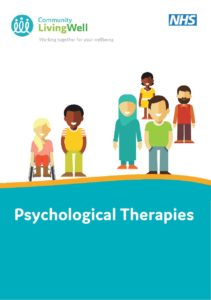
Author: Tamsin Cogan
Category: Talking Therapies
Posted on: 21st August 2019
Self-help Magazine
Summer can be a time that many of us look forward to. Sunshine, sandy beaches and barbeques are just a few of the many delights this season has to offer. But an increase in the temperature does not always correlate with an improvement in our mood, and that is why Community Living Well is here to support your wellbeing throughout the year – come wind, rain or shine.
In this special themed self-help magazine available here, we take a look at a selection of NHS recommended resources that range from breathing and sleeping exercises to meditation and mindfulness techniques. Whilst self-help may not provide all the answers you are looking for, the tools and exercises can complement and enhance the teachings that you will learn during your support with Community Living Well. They can also be used once support is over, to help keep yourself well and moving forward in your recovery journey.
There are many ways to learn about news and developments across Community Living Well and this magazine is about that but also more importantly it is about you! What your concerns are, achievements and ideas. So if you have any suggestions, features or stories that you think we should include then contact me at [email protected]
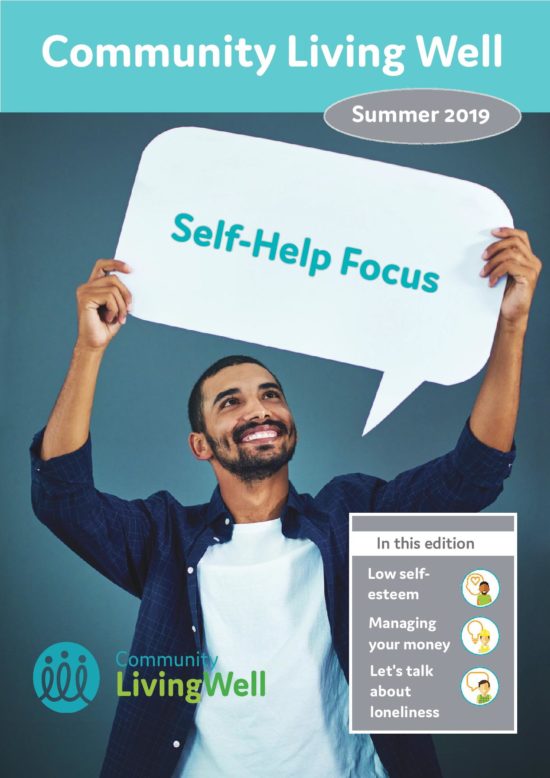
Author: Tamsin Cogan
Category: Community Living Well
Posted on: 26th July 2019



